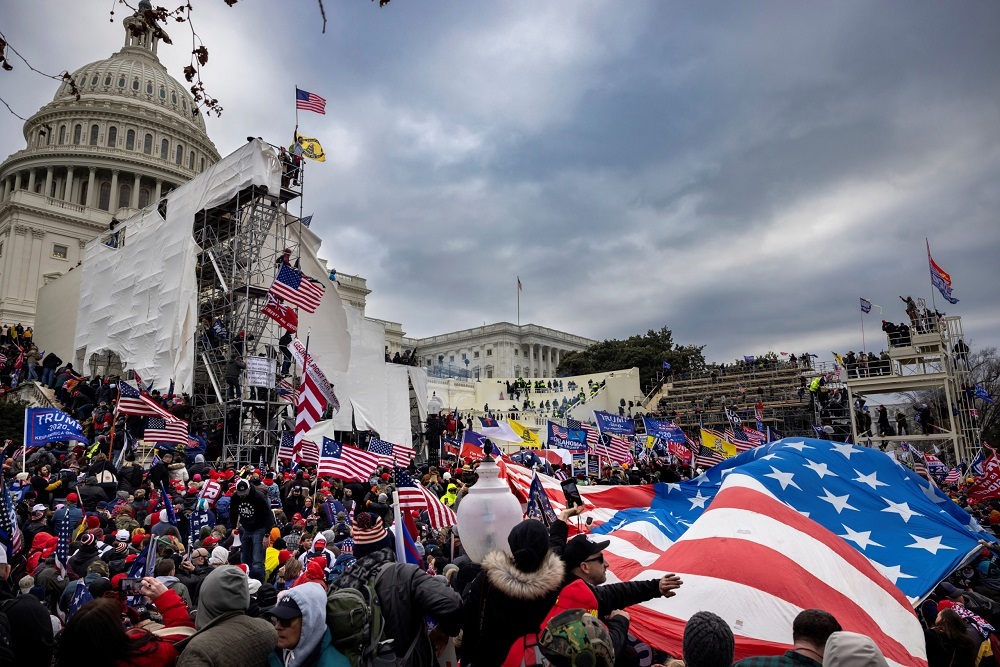U.S. Senators Sherrod Brown (D-OH) and Bob Casey (D-PA), along with U.S. Representative Marcy Kaptur (D-OH-9), led a bicameral letter to President Biden to express their support for the Department of Commerce’s (DOC) investigation into whether Chinese solar cells and modules are circumventing antidumping and countervailing duties (AD/CVD) through Malaysia, Vietnam, Thailand, and Cambodia. The lawmakers’ support for the investigation comes after an extended corporate political lobbying campaign against American manufacturers. The letter was also signed by U.S. Representatives Tim Ryan (D-OH-13), Mike Doyle (D-PA-18), and Terri Sewell (D-AL-7).
AD/CVD laws shield domestic manufacturers and producers from unfair trade practices. The current case concerns the threat to domestic production of solar modules, which are necessary components of our burgeoning electrical grid and infrastructure. Duty evasion leaves American companies at a competitive disadvantage, and means AD/CVD orders do not bring full relief to U.S. companies impacted by unfair trade. The Chinese government has a history of investing in “third party” countries in order to continue dumping their subsidized products in the U.S. market.
“The duties currently imposed on Chinese solar cells and modules are in place after exhaustive investigations by both the Department of Commerce and the U.S. International Trade Commission found that Chinese solar cells and modules were being unfairly dumped onto the American market and materially injuring our American solar industry,” wrote the lawmakers.
“To underscore and reiterate the point: these laws are designed to ensure that American manufacturers and producers can compete on a level playing field, free from unfair trade practices,” the lawmakers continued.
“If undue political influence on this case is allowed to prevail, it would lead to more risks and vulnerabilities tomorrow by sending the message to non-market countries that our trade enforcement laws and future AD/CVD cases can be undermined through aggressive political lobbying,” the lawmakers concluded.
Recent political pressure has attempted to influence this investigation, which undermines the integrity of U.S. trade enforcement laws and the independence of our federal workforce. These investigations are critical for American manufacturers to compete with unfair Chinese trade practices. The United States currently leads the world in solar technology innovation, yet 80% of the world’s solar panels are currently made in China. Through a combination of lax environmental standards, the use of forced labor in the Xinjiang region, targeted subsidies, and other predatory trade practices such as dumping, circumvention, and intellectual property theft, China has engaged in unfair trade for years against American competitors.
You can find the full text of the letter here and below:
The Honorable Joseph R. Biden
President of the United States
The White House
1600 Pennsylvania Avenue NW
Washington, DC 20500
Dear President Biden:
We write to you as lawmakers to voice our strong support for the Department of Commerce’s (DOC) investigation into whether Chinese solar cells and modules are circumventing anti-dumping and countervailing duties (AD/CVD) through Malaysia, Vietnam, Thailand, and Cambodia. In particular, we write to highlight our support for the civil servants, including analysts, economists, attorneys, and investigators at the DOC who are charged with enforcing our nation’s trade remedy laws. Their commitment to due process for American manufacturers in the face of well-funded, overwhelming special interest political pressure seeking to undermine an independent, quasi-judicial investigation should be commended. This political pressure is an attempt to undermine the integrity of our trade enforcement laws and the independence of our federal workforce.
At its core, this investigation into potential Chinese circumvention of our anti-dumping and countervailing duties through several Southeast Asian countries is a trade enforcement matter. Much of the current political narrative seeks to misstate the legal basis for AD/CVD cases and anti-circumvention investigations. These investigations have been an important fixture of our trade enforcement system since anti-dumping and countervailing duty laws were first enacted in 1930 to ensure American manufacturers and their employees did not suffer injury from global anti-competitive market behavior. The duties currently imposed on Chinese solar cells and modules are in place after exhaustive investigations by both the DOC and the U.S. International Trade Commission found that Chinese solar cells and modules were being unfairly dumped onto the American market and materially injuring our American solar industry. While these kinds of investigations of material harm to American industry are rarely in the news, they are vitally important as American companies have been on the receiving end of anti-market behavior – much of it bankrolled by foreign governments – in industries ranging from steel products, truck trailer chassis, furniture, engines, mattresses, paper, welded pipes, propane gas tanks, and plywood, among many others. To underscore and reiterate the point: these laws are designed to ensure that American manufacturers and producers can compete on a level playing field, free from unfair trade practices.
AD/CVD cases are critical in industries where China has virtually a global production monopoly, such as with solar cells and modules. The United States currently leads the world in solar technology innovation, yet 80% of the world’s solar panels are currently made in China. Through a combination of lax environmental standards, the use of forced labor in the Xinjiang region, targeted subsidies, and other predatory trade practices such as dumping, circumvention, and intellectual property theft, China has engaged in unfair trade for years against American competitors.
This new petition filed on behalf of a small woman-and-minority-owned company, Auxin Solar, alleges that the antidumping and countervailing duties on Chinese cells and modules are being circumvented by shipping Chinese-made goods though countries like Malaysia, Vietnam, Thailand, and Cambodia. If the petition is correct, this is an illegal circumvention of U.S. trade remedy laws. The DOC is upholding U.S. law by investigating this petition. Investigations must be allowed to move forward, free from external influence. If there is no illegal circumvention of our trade remedy laws, the investigation will draw that conclusion.
It is troubling that corporate lobbying against a simple investigation would reach this level of mass hysteria if there was not some concern over what career civil servants at DOC may uncover. It is unclear why millions of dollars would be spent on advertising and lobbying to urge political interference in the trade enforcement process. The Solar Energy Industries Association (SEIA), which has spearheaded lobbying against this investigation and represents the interests of commercial-scale solar installation and financing interests, includes Chinese manufacturers in its membership: JinkoSolar, JA Solar, Trina Solar, BYD, LONGi Solar, and Canadian Solar.[1] Several of these companies have had their shipments to the United States blocked by Customs and Border Protection (CBP) for use of Uyghur slave labor in their production, and they are the exact companies that have been subject to the original duties.[2] The foreign solar manufacturers suggest that the DOC investigation inserts uncertainty over potential future duties. There should be no uncertainty on the market at all if these companies fully participate in the review and if, as they assert, there is no illegal AD/CVD circumvention occurring.
This would not be the first time that Chinese companies have sought to avoid U.S. duties on solar products and used the cover of domestic industry to mask their actions. After initial duties were imposed on Chinese solar products in 2012, Chinese companies moved operations to Taiwan, leading to a new AD/CVD case in 2014. If the petition from Auxin is accurate, Chinese companies continued their “whack-a-mole” approach by subsequently moving factory production to Malaysia, Vietnam, Thailand, and Cambodia after 2012, while using components and equipment almost exclusively made in China, and selling their products in the American market. If that’s the case, then American solar developers and installers have been relying on dumped and subsidized Chinese solar products directed through pass-through countries for their solar project installations. Regulators at DOC must be given sufficient time and resources to thoroughly investigate this petition – any request to end the investigation earlier than what is necessary for a thorough investigation is, in essence, a request for lax enforcement of U.S. trade remedy laws.
Beyond the basic integrity of our trade enforcement system and process that enables our government to shield American industry from anti-market predatory behavior, there are important policy reasons to support aggressive enforcement. Robust trade enforcement is a key component of this Administration’s long and short-term goals of supporting American clean energy manufacturing in the race toward a resilient clean energy future. American clean energy manufacturers must know that the United States government will enforce its own trade remedy laws; they need the certainty and security of a level playing field for American workers and products. Under no circumstances should American producers be asked to compete in an anti-competitive market where foreign producers are allowed to manipulate prices, increase environmental pollution, and use slave labor with impunity.
A robust, durable, and long-term climate change policy must include incentives for “clean” clean energy manufacturers. Such an approach gives American producers a competitive advantage since they are the cleanest manufacturers in the world and it deters manufacturers that would aggressively pollute the Earth to produce the cheapest products. It is the height of irony that Chinese solar manufacturing has required new coal-powered generation to be brought online. In fact, China started more coal plants in its solar producing region in 2020 than the world decommissioned combined that year.[3] If it takes years for a solar plant using coal to return to carbon neutrality, it is actively counterproductive to our global climate change efforts to rely on Chinese-made products for clean energy utility use.[4]
Separately, there are a number of additional issues outside of trade enforcement that need to be raised. First, there are national security concerns with Chinese companies dominating the solar market. Solar energy is vulnerable to cyberattack through solar photovoltaic inverters and microchips or microcontrollers embedded into a module’s junction box, which can be programmed. These smart modules look virtually identical to a traditional photovoltaic module. By relying on Chinese-made solar panels, we jeopardize America’s energy security well beyond this administration. The war in Ukraine has given us deeper, real-time insight into the dangers of overreliance on an autocratic foreign power for energy. Having half of our electric grid rely exclusively on solar panels and arrays from China, and limited U.S. solar technology and manufacturing capability due to failure to enforce trade laws, could put American energy and national security in a precarious position.
Moreover, we believe that some of the claims on the effects for solar installations as a result of this investigation are disingenuous. In the past ten years, solar has shifted to the least costly form of producing electricity, and trade enforcement laws have not changed in the interim. In fact, the cost of solar has continued to decline, despite previous tariffs imposed under Solar 1 and Solar 2 AD/CVD and Section 201 Solar Safeguards. The more recent Section 201 Solar Safeguards from the previous administration have been in place since 2018, and every year since then SEIA has released reports on the growth of solar installations – averaging 40% increases every year.[5]
We are hearing reports that the current “freeze” on solar panel imports is not a result of work stoppages, but instead a conscious choice by Chinese manufacturers to temporarily constrain supply on the American market to exert more political pressure on this administration. If anything, there seems to be a deliberate exploitative use of this investigation as an excuse to break American contracts and divert product to the European Union, where prices for solar products have skyrocketed in recent months due to the war in Ukraine.[6] If true, this is even more reason for this administration to thoroughly investigate the circumvention claim and arm itself with the information it needs to move away from dependence on Chinese-made solar panels.
The bottom line is that short-term supply disruptions in the solar supply chain are no reason to abandon trade enforcement. In fact, if trade enforcement is abandoned, these short-term disruptions will almost certainly become long-term issues. The existing challenges are almost exclusively caused by our unhealthy overreliance on a supply chain dominated by Chinese manufacturers, whether it be due to the increase in logistics costs, skyrocketing polysilicon prices caused by a Chinese monopoly, and concerns over Chinese forced labor. All of these issues could be resolved in relatively short order if we enforce trade laws and support American solar manufacturers in rebuilding an alternative supply chain not over-reliant on the Chinese.
We support this Administration’s commitment to enforcing our trade laws and promoting domestic manufacturing. We believe we can and will meet our climate goals without exclusive reliance on Chinese-made solar panels, whether shipped directly or via third party countries. As a result, the U.S. electrical grid will emerge stronger, more reliable, and more secure. If undue political influence on this case is allowed to prevail, it would lead to more risks and vulnerabilities tomorrow by sending the message to non-market countries that our trade enforcement laws and future AD/CVD cases can be undermined through aggressive political lobbying.
Original source can be found here.






 Alerts Sign-up
Alerts Sign-up